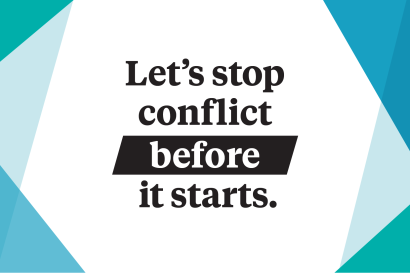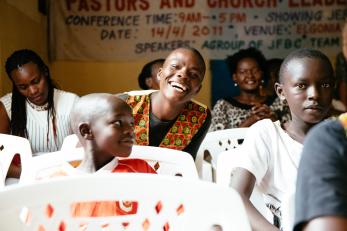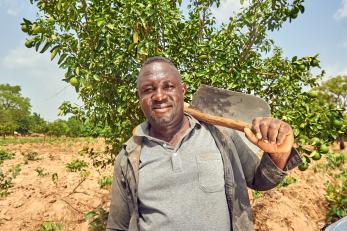Rethinking the refugee crisis

In the time it takes to read this sentence, two more people were forcibly displaced from home.
In South Sudan, Syria and beyond, conflict has forced tens of millions of people to flee their homes in search of peace. Mercy Corps is working tirelessly to meet refugees’ urgent needs but this widespread emergency is only the symptom of a larger problem.
To solve the refugee crisis, we must focus on the conflicts that force people to flee. The rumble of violence starts long before a person faces the impossible choice of whether to stay or go: Governments fail. Inequality spreads. Weather grows erratic.
This is where we’re working to design new solutions. As we remember the millions of refugees who have risked it all to find safety, join us to help build a world where no one else has to.
Make governments work for everyone

When working well, good governance resolves conflict, delivers justice and maintains peace. But when government isn’t working well, essential services fall apart. People feel marginalized. Frustrations boil over into violence.
What if before violence erupts, we build a community of peacemakers?
In 2007, Kenya’s election violence forced as many as 600,000 people to flee their homes, the vast majority of it perpetuated by youth. In response, we launched one of the largest youth empowerment programs in Kenya’s history, helping young people plug back into their communities. The result? More than 11,000 youth parliamentary groups took root, empowering 2.5 million young people to peacefully address issues like unemployment, environmental degradation and gender-based violence.
Raise a voice for equality

At the core of every conflict is inequality—a feeling of injustice, discrimination or persecution. When expressed healthily, these feelings can motivate people to create lasting change in their communities. But when not, they can drive people into the false promises of extremism.
What if before we lose a generation to conflict, we connect them to opportunity?
This question is especially critical to Syria, where war has scattered an entire generation of young people across the region. Do they see a place in their country’s future? Do they feel their voice will be heard? In Syria and beyond, we’re pointing young people toward the future with the education, job skills and psychosocial care they need to raise their voice as a new generation of peacebuilders.
Protect the resources at risk

Vanishing water, degraded lands, erratic rains—climate change is no longer a distant threat. As competition over precious natural resources increases in vulnerable places around the world, conflict is displacing entire communities and leading to widespread hunger.
What if before neighbors become rivals, we bring them together to protect the resources they depend on?
That’s what we’re doing in Nigeria’s Middle Belt, where more than 300,000 people were displaced in 2018. Our peacebuilding work brings farmers, pastoralists and fishermen together to form peace committees and better share the land and water in a way that benefits everybody.